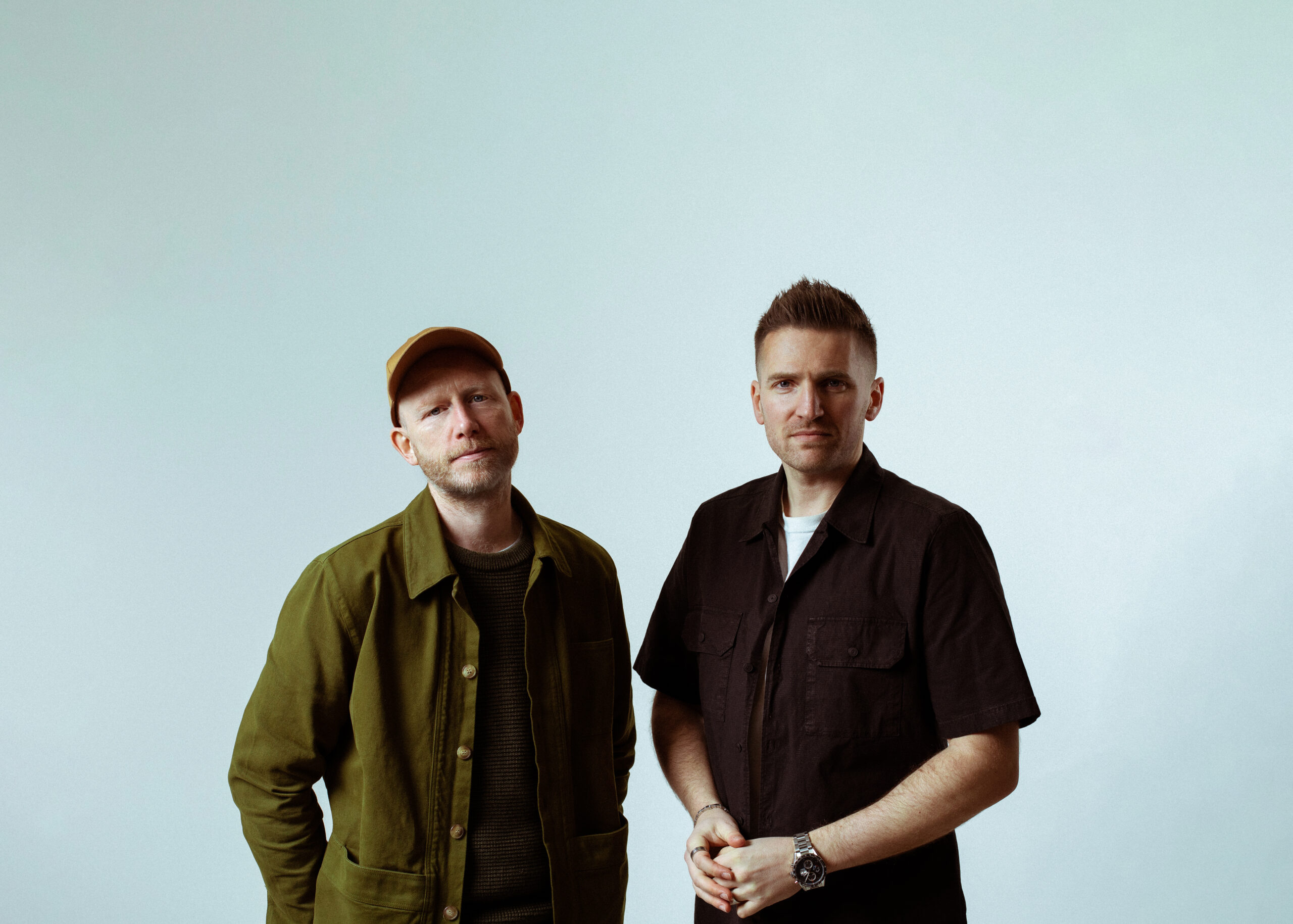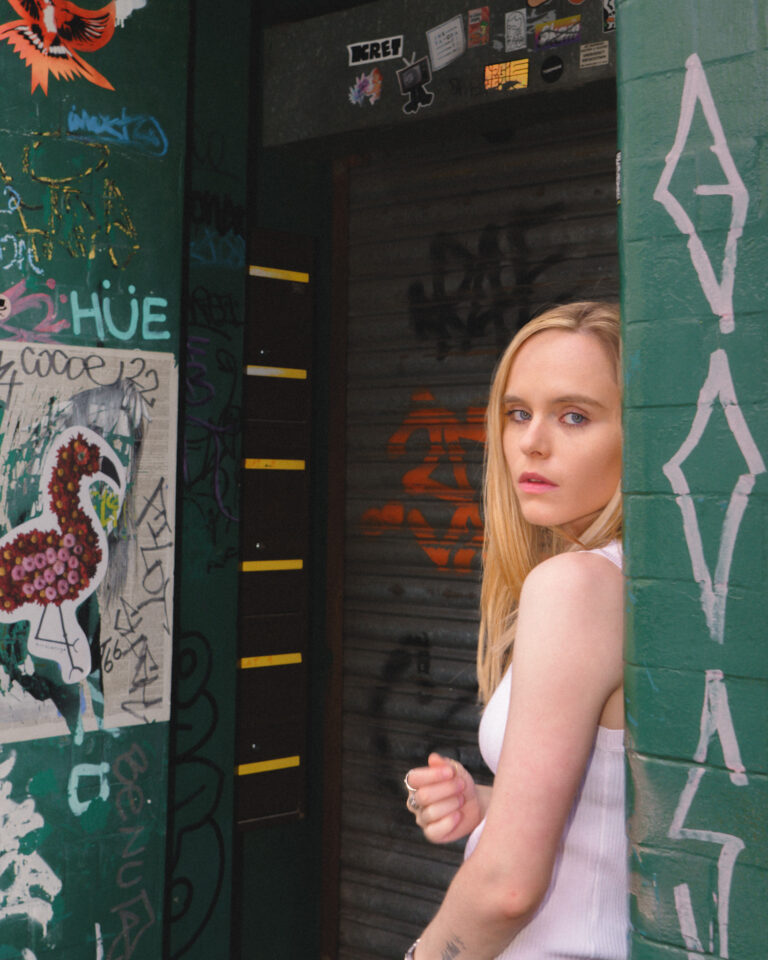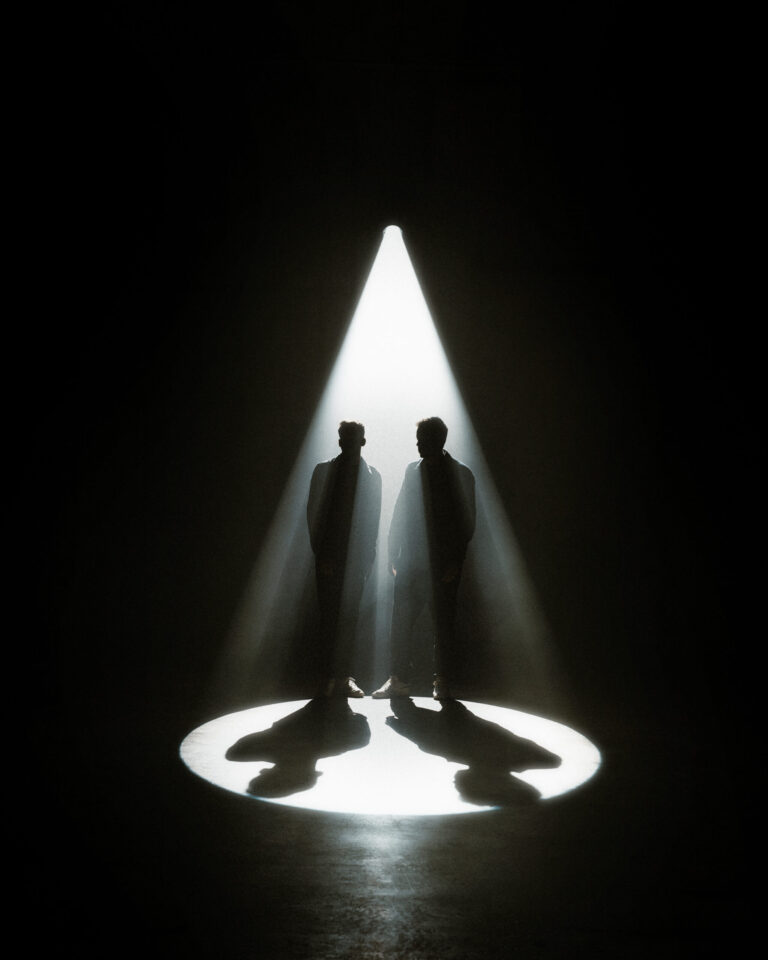War, covid, brexit, cost-of-living, the state of social media – to say it’s turbulent times right now would be underselling it. In a noisy and divided world, finding a moment of solace is becoming more rare.
As citizens of the world, Pete Rogers and Andy Powell (AKA Technimatic) have been dealt some of the brunt of these struggles. From disruption to nightlife, to battling for studio space and fulfilment services – these two might’ve felt like they chose a difficult time to put out an album, for the first time on their own label.
But from another perspective – when there’s so much darkness in the world, channelling your focus into artistic passion sounds like the perfect antidote. Technimatic chose this perspective.
In the period between today, and when sit-down raves were a ‘thing’, these two have been pouring their heart and soul into ‘For All Of Us’ – culminating in 14 tracks of beautiful, musical, liquid drum & bass that’s just as much for the dancefloor as it is for listening in solitude – and the tracks were crafted specifically to light up both of these experiences for the listener.
Tracks like ‘Coming Back’ tell a story of relief and return to clubbing, whereas ‘Under The Skin’ aims to hit on more self-reflective emotions. As someone who’s dealt with brutal bouts of mental health struggle, Andy notes that producing these tracks has been a therapeutic endeavour, and the hope is that any listener with the same struggles can be touched with some relief of their own.
‘For All Of Us’ is packed with effort and emotion. With such a cohesive but rich theme – we sat down to unpack it all. From the music, to the motivations, to all the moving ancillary parts.
Last time UKF spoke to you around three years ago, it was about the launch of your label and departure of Shogun. How’s it been since then?
Andy: It’s been going great. But when we left Shogun it was a learning curve – because we’d been with them for so long, we’d kind of gotten used to that system of the way things work and how they happen.
Releasing music ourselves – there’s a lot to take on board, a lot to think about. That comes with a lot of pros and cons. What’s lovely is that we’re seeing the very inception of something, and then it’s on our shoulders to deliver that all the way until the end. When it eventually does come out, and you see the response, it almost has an even more special quality. Would you agree Pete?
Pete: Yeah I couldn’t put it better. It’s been a steep learning curve, with plenty of bumps along the way. But when this album drops, I think it will be one of the most satisfying moments of our career together. Because from the very first sketches, to making the music, doing the artwork, vinyl production and distribution, promotion – we’ve been there all the way through.
So would you say you enjoy those parts ancillary to making music?
Pete: … I wouldn’t say enjoy!
Andy: Ha! I mean we love the creative side. We’ve mentioned it before in previous interviews – we have jobs outside of D&B. Pete’s a graphic designer and I’m a cameraman. So the beauty of that, is that those two skill-sets lend themselves quite well to a record label. When it comes to the design, and when it comes to any of the nice social media stuff, video clips, telling a story – we’re used to it.
That said, it means that we’ve also worked harder on this than any other project we’ve done. That’s come with a bit of bitter-sweetness. We’ve enjoyed it – but it’s a funny thing. I wouldn’t say looking at spread-sheets for ordering vinyl stock is particularly exciting, but it’s all part of the process.
Pete: And it would’ve been hard enough in itself – but we’ve had some pretty crazy things happen this year, just to really test our patience.
At the start of the year we got informed that our studio was being converted to make way for flats. Thankfully at this point all the album was finished, but it meant that we couldn’t change or tweak it, or go back in and work on little bits for social media and things. So that went into Andy’s loft initially, then had to be pulled back out again and put into storage to protect the gear. That in itself was a massive job!
Then, halfway through the year when we thought we’d got everything into position, and it was looking good, our vinyl distribution company went into liquidation. So that meant we had this three-week window to run around like headless chickens to find a new distribution company, and a new fulfilment company – and we’ve never done any of this before!
It’s been insane at points. It really has. But it feels like – touch wood – everything is now in position and ready to go.
Doing it all again – would you outsource parts of the process? Or was complete control so fulfilling that you wouldn’t change a thing?
Pete: Well after the distribution thing happened – in about July-August of this year, we were right in the weeds. It was the lowest point, the most stressful point where we’re just like, ‘is this all just going to get torpedoed?’.
I remember me and Andy having a conversation at that point saying: “We are never ever going to do this again. Ever”.
But then, you know what happens. Things turn and get better, you see the finish line, the final version of the record – and you think ‘actually, was it that bad?’.
We’re talking about economic struggles and the post-covid period here – and that’s the theme of the album really, right?
Andy: Totally. So, we’ve all lived through a really bizarre period of time in the last three years, which coincidentally happened at the same time that we were starting to form the initial ideas for this album.
Probably like a lot of people out there, we were feeling very strange, and very affected by covid. Everything we knew had been stopped, without our control. And coming out of covid, the world still felt like it’s in a really bizarre place. Particularly within the music industry, where a lot of issues feel more amplified now.
There’s this expectation of social media content, and a focus on what other people are doing, with the mindset of ‘how do I compare to that?’. It obviously extends beyond music too, people in general go on Instagram, or watch the news, or whatever and think ‘do I shape up?’. There’s all this mad swirl of noise, drama, and hecticness that’s being constantly fed into our psyches.
The album is called ‘For All Of Us’, because it’s supposed to be a reminder that, when everything externally can feel really challenging, this is the record we made to say ‘stick this on and it will give you a moment to escape all of that’.
Headphones on. Screens off. Love it.
Exactly.
One of the threads with our music over the years is that we’ve had endless messages saying things like “your music has helped me get through a struggle” or “I was in a difficult place and I put this track on, and it inspired me to carry on”. So we thought maybe there’s something in our music that we need to expand on a bit.
Pete: Making an album is a very intense process. Once you get into it and you know you’re working towards a bigger project, it does slowly become all-consuming in your life and you’re thinking about it all the time. It’s also a very insular process, especially without being associated with a label – where we would have meetings and discussions between us. It’s just me and Andy sending tunes back and forth. Building it slowly, but surely. But no one’s heard it.
And the magic thing about putting a piece of art out is, no matter how we think and feel about it, as soon as you put it out into the world, it becomes something completely different.
People build their own memories and moments around it. They might tap into things that we haven’t even considered – a random lyric that we didn’t think much of, will resonate with them in a way that we can’t expect. Or a chord-change will just click in someone’s head and give them a good feeling. That’s the magic, and that’s also what’s behind the title, ‘For All Of Us’.
With bits of it written during covid and those times when it wasn’t certain clubbing would ever return – what were you seeing in the future when writing some of these?
Andy: There are certainly tracks on there that were written at a time where we didn’t know what was going on. Like ‘Departure’ for example, was one of those ones where we were just writing some music, not thinking about if it’s going to be in a club. Just writing.
But other tracks on there like ‘Coming Back’ I remember distinctly. We had our first show coming back after lockdown – Warehouse Project in Manchester. Pete and I had this little sketch going on, and I suggested we do something that feels very much like a moment of ‘the clubs have reopened, we’ve come out of this really mad space, and this is our dramatic entrance’. A perfect intro tune. We had this beautiful orchestral intro, and then we got this vocal: ‘I’ll never be the same, I’m coming back, I’m coming back to you”. Which just absolutely summed up that feeling we had when we were writing music, and we had no idea what was going on – whether we’d even get to be DJs anymore. It felt like that record was the moment of return, and relief.
Pete: Yeah, as Andy said, some of the sketches were made during lockdown. And I’d say one of the most recent tracks got made maybe midway through last year.
But I can remember one of the earliest on there is with DRS, ‘Risk Everything’. I know it’s the earliest because I played it at a sit-down gig.
Oof. Grim times!
Pete: But you kind of love it though! We were all trying so hard, within what we were allowed to do.
Some of the more upbeat tracks on there through, like ‘Sunburst’ and ‘Where It Begins’ those definitely feel like a release from covid. We made those when clubs were back, and we were feeling that excitement and exhilaration of being back in everything.
But there is also a strong thread of mental health and struggle within the album. Which came through quite naturally really, we didn’t sit down at the start of the project thinking ‘let’s make an album about struggle and hope’, but these things kind of just manifest – and you just have to trust the process, and know that you’re going to be influenced by the world inside out. You have to let all that in and be a bit of a sponge.
Andy: I myself over the last few years have had some pretty deep, intense struggles with mental health. With this album, in the same way as I found a lot of solace by pouring a lot of creativity into it, I hope that people that listen to it also find that same level of peace.
Mental health is something that I’m really pleased is being talked about a lot more now. But it’s important to say: If there are people who listened to the album or read this article, who are going through a similar sort of struggle – I can absolutely say that it’s possible to come out the other side, there is hope, there is help. I’m proof of that.
Is there any source of info that you would recommend that helped you?
Mind is an amazing charity and one that’s definitely worth going to as a port-of-call for people that are struggling. But I think ultimately, if you can, reach out to friends and family and people closest around you. It’s amazing when you actually sit with people and start having the conversation – to REALLY ask how someone is doing. You are not alone in your struggle.
When you’re in that place, feeling shit, or you know something’s not right – the hardest thing to do is to tell someone close to you that you’re finding it tough. But that is step one.
You two have been around for fifteen-odd years. And seen so much change in drum & bass. What are your thoughts on the scene right now?
Pete: It’s a struggle right now for people that make musical drum & bass. There’s no doubt about that. Even though when we DJ, we tend to play across the board, but we’ve had less gigs this year and last year than pre-pandemic. And that’s down to lots of different factors. Ones that we’ve talked about already, covid, cost-of-living, brexit, the world just being a very different place right now.
I don’t know if it’s worth going into the nuts and bolts of the economy of drum & bass and promotion and all that. But all I can say is it’s definitely been harder.
Andy: When we were getting into D&B, it was the 90’s. Over that time, as fans of the music and as artists, we’ve seen lots of different changes. Changes in sound, style of parties, venues appearing and disappearing. It’s a weird one.
Depending on what side of the scene you shine a torch on, that will depend on the answer to that question as to whether it’s thriving or not. It does feel like there are areas where, on the surface, it looks like it’s booming. And others where it’s completely different to how it used to be, almost the opposite.
Obviously things have to evolve and progress. Overall, I mean it would not be possible to say the drum & bass scene is not in a ‘good’ place. Because it’s here, and it’s global. But, there are certain parts of it we’d like to see more of. For our corner, it feels like certain parts are not where we’d like to see them. But that’s what music is like.
Pete: One of mine and Andy’s phrases we keep saying is ‘just stay on the bus’. Have you ever heard of Helsinki Bus Station Theory?
I haven’t. Do tell…
Pete: So the theory goes: There are several buses all leaving from Helsinki bus station. For a few kilometres, all the lines leaving from any one platform take the same route out of the city, making identical stops.
It’s only after several stops that the buses start to diverge, and even then, many of the routes have twists and turns, making you feel unsure about the direction. Up in the mountains, off to the city, down to the coast. From the first few stops you would never know. Also, you notice that the people on the bus quickly drop off, leaving only a few people by the end of the route – where you then branch out on your own, and end up at this really interesting destination.
So the idea is that when you’re on that creative road, sometimes it can feel like you’re not doing the right thing. No one cares what you’re doing or thinks it’s any good. But if you believe in it, stay on the bus. And you’ll end up at a destination that will be worth going to ultimately.
Andy: It’s amazing how many of our peers that we really look up to – LTJ Bukem, Fabio, London Electricity – they all say the same thing to just stick to what we’re doing. Stay on the fucking bus!
Maybe that’s why we’ve been around so long. Not trying to leapfrog or do whatever’s popular at the time. Just sticking to what we do.
Love that. Speaking of buses – will there be a tour to promote the album?
Andy: We’re just doing two shows for the album. One in Bristol at Thekla, and one in London at XOYO. The London one sold out in like three hours – which was mad!
But rather than the original model of doing an album and then doing a bunch of shows – again because of everything that Pete was alluding to, with the way of the nightlife landscape – it’s just felt like that’s not going to be a viable thing. So rather than that, we’re doing two special shows, and we will build from that. There is a lot of work for more shows though.
Pete: Yeah for 2024 we’ve got some exciting plans that are bubbling away, now we can focus more attention on that side, having completed the album.
Amazing. Final question – I know there’s a story behind the album artwork. Could we touch on that?The cover is a beautiful image. It encapsulates the light out of the darkness, and ranges across everything we’ve been speaking about and the state of the world. That photograph is from a Ukrainian photographer, Masha Raymers who is based in Lviv. Around the time we were getting all the artwork together, we reached out to her about this photograph, and it was at the time where the war in Ukraine was really starting to begin. It feels like a beautiful thing to have as our cover, illustrating that idea of darkness and light. We’ve got to say a huge shout to her and love to everyone out in the Ukraine.


